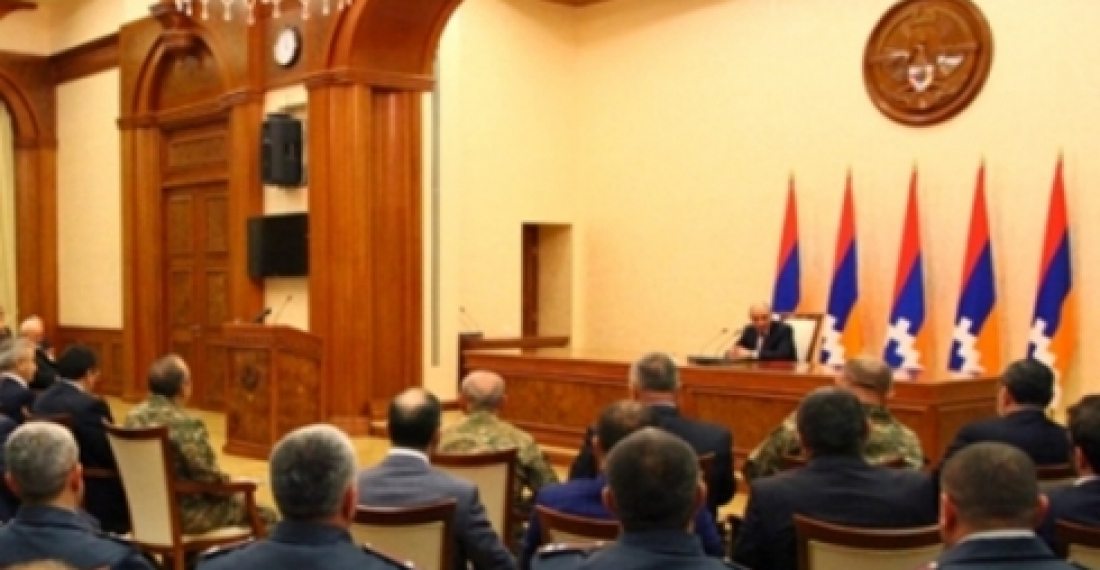Preparations are under way for Parliamentary elections that will be held in the self-declared Nagorno-Karabakh Republic (NKR) on 3 May. Whilst these elections are not recognised by the international community the authorities of the self-declared Republic are taking their preparation seriously.
NKR President Bako Sahakyan convened an enlarged working consultation dedicated to the holding of the elections on Saturday (28 March). According to his press office "representatives of legislative, executive and judicial authorities, political and public sector were invited to the consultation".
The same source reported that Sahakyan "gave concrete instructions to the concerned bodies towards the proper organization of the elections, outlining that everything possible must be done to hold the elections in strict correspondence with the letter and spirit of the law and ensure full exercise of the citizens' voting rights".
According to Bako Sahakyan elections in Karabakh "have always been exemplary and current elections must be so too". He appealed for the election campaign, to be carried out in a civilized way, and in an atmosphere of mutual respect.
Both the United States and the European Union have already declared that they do not recognise the Nagorno-Karabakh Republic and hence will not recognise elections held there. The elections have been condemned by Azerbaijan.
source: commonspace.eu
photo: The President of the self-declared Nagorno-Karabakh Republic (NKR) addressing officials ahead of parliamentary elections in the territory scheduled for 3 May (picture courtesy of the Press Service of the NKR President).







